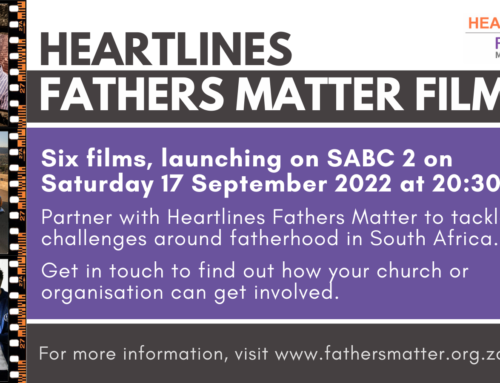It was just another praying through of the Lord’s prayer…
You know the deal, ‘Our Father, who are in heaven, blah blah blah blah
blah blah blah blah, you know, find the rhythm
blah blah blah lips moving to recreate words long worn into you in some ancient school assembly probably
blah blah blah’ WAIT, WHAT?
There is was, middle of the prayer, Matthew 6, verse 11:
11 Give us today our daily bread.
That’s surely a typo, right? Everyone knows it goes, ‘Give me today MY daily bread.’
But it wasn’t…
IT. WAS. ME!
i would so much like to claim the credit for this one, but after 41 years of reciting the Lord’s Prayer, as it has come to be known, the very one that Jesus taught His disciples to share with them some incredible ingredients that make up a good prayer, it took someone else to point it out to me.
The phrase is a call for “OUR daily bread.”
How had i never seen that before?
The words of Martin Luther King Jnr. resonate in my ears, “No one is free until we are all free.”
YOUR NEED BEFORE MY WANT
In the Old Testament of the Bible, the second book of The Torah, in Exodus 16 there is a beautiful story of God supplying the Israelites with a sort of bread from heaven as they wandered through the desert. They were given strict instructions to collect just what they needed, and no more. Paul echoes a reminder to this in his second letter to the Corinthians in chapter 8:
13 Our desire is not that others might be relieved while you are hard pressed, but that there might be equality. 14 At the present time your plenty will supply what they need, so that in turn their plenty will supply what you need. The goal is equality, 15 as it is written: “The one who gathered much did not have too much, and the one who gathered little did not have too little.”
While, in this passage, the writer is speaking specifically about believers sharing with believers, the reference to the community of Israel throws open a bigger picture. That when God provides, there should be enough for everyone. As long as people continue to adhere to the principle of gathering what you need. Not too much or too little.
Or to put it a different way, the call for us to be crying out for the provision of ‘Our Daily Bread’.
In Africa, we have the idea of Ubuntu – i am a person through people, or i am what i am because of who we are.
Ubuntu is the potential for being human, to value the good of the community above self interest.
We love to help other people. i believe that has been wired into our humanity. We see someone in need and something in us instantly wants to reach out and make a difference. However, as we grow up on a planet with a very loud and clear ‘Me first’ personology that is taught and modelled to us almost everywhere we look, i wonder where that particular strand of D.N.A. was reprogrammed?
Could it be that our desire to help others and see justice and equality for all has been curtailed, and even overwhelmed sometimes, by our longing for person comfort and luxury?
i will help you, as long as it does not affect my own personal comfort and well-being.
Mine is more important than yours.
Give me this day MY daily bread. And then if there is leftovers, may you have yours as well.
Although that’s not how the prayer goes, is it?
What needs to change in me, for me, from me, the moment the light comes on and i realise that the words are, and have always been,
“Give us this day our daily bread.”
[For some practical conversations about how change can happen in South Africa, click here]








Ok so now this is the second time I’m visiting your blog. Can I just say this post game me goosebumps. NICE TO MEET YOU MR FISH
Wow, thank you, both for visiting and for your more than kind words. Nice to meet you. May I ask your name?
Hmm, a lot of import in this post! And all very true for the times we live in, unfortunately.
Which is why we need to refocus, retrain our minds and our communities, subvert the message of the day we are surrounded by and be part of creating something new, that looks after all…
Dear Brett,
A friendly correction: You probably meant 2 Cor 8.
Also, please note the context: Believers giving to believers and equality between the believers of the Corinth Church (given to berating they received in 1 Cor) and not random charity. I do not dispute that the bible talks about loving your neighbour (i.e. charitable giving) but here, in 2 Cor 8, Paul is talking about Christian giving in the church and not social justice. I don’t think you can see 2 Cor 8 as a form of Ubuntu.
Regards
Thanks for the friendly correction on the passage address. i have added a little more context to my use of that passage which i was using more for the reference to Israel in the desert than its present usage but think that both apply. i think the church is an excellent place for Ubuntu to be modelled and we don’t seem to even get it right there, but i do believe in the bigger picture of Old and New Testaments combined that it should stretch far beyond church walls, especially once Jesus has redefined family and neighbour as well as including enemy in the circle of the people we are meant to show love to.
[…] Fish at https://brettfish.wordpress.com/2015/08/03/whose-bread-is-it-anyway/ this post resonated with me and just spoke to my soul. I feel like I have something in common with […]